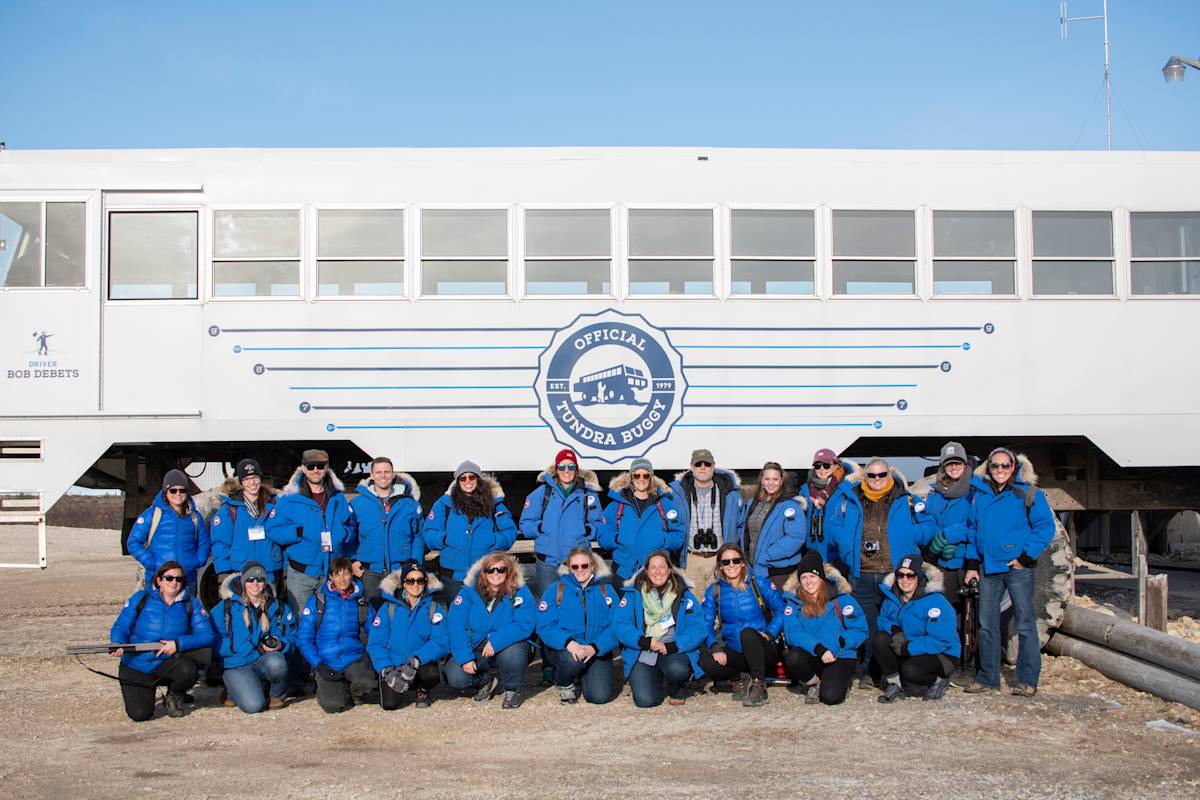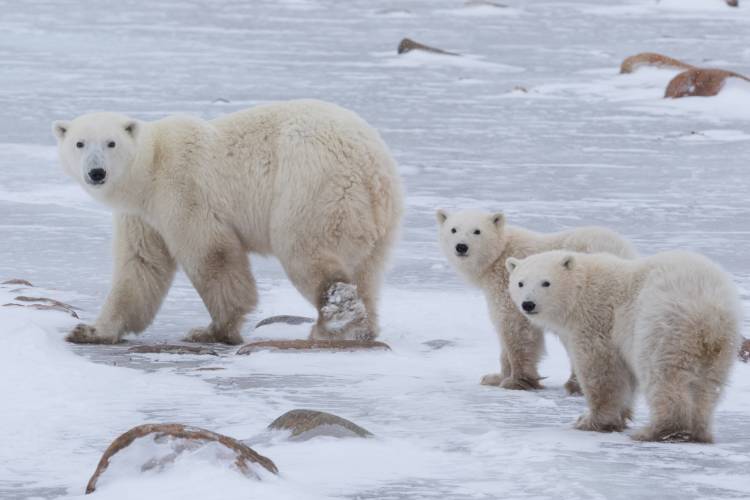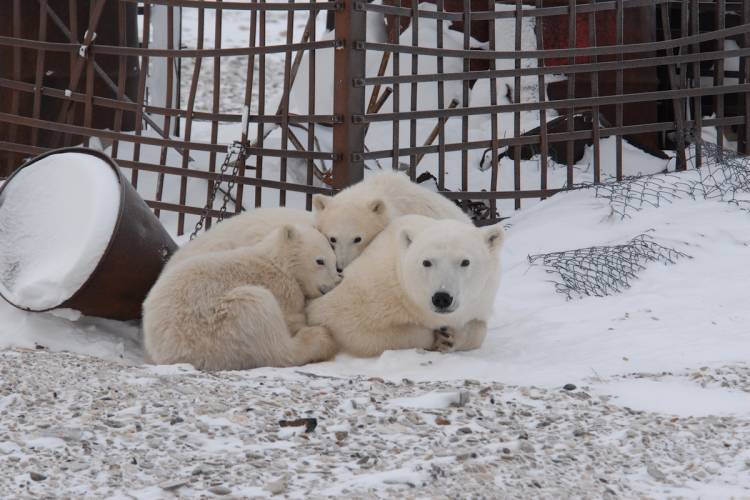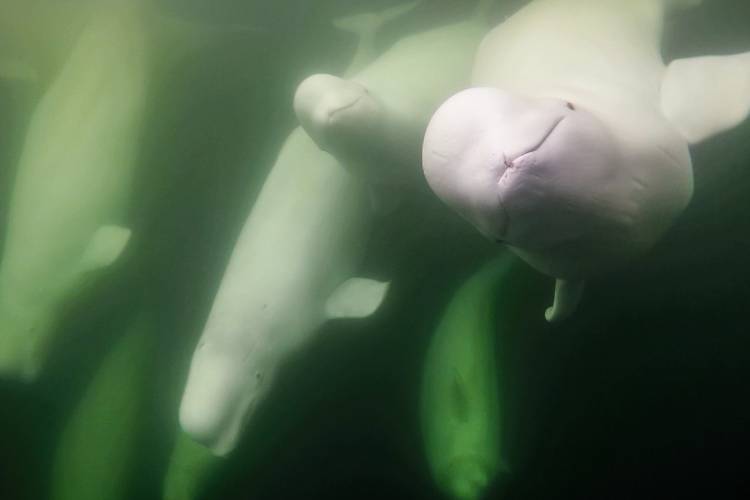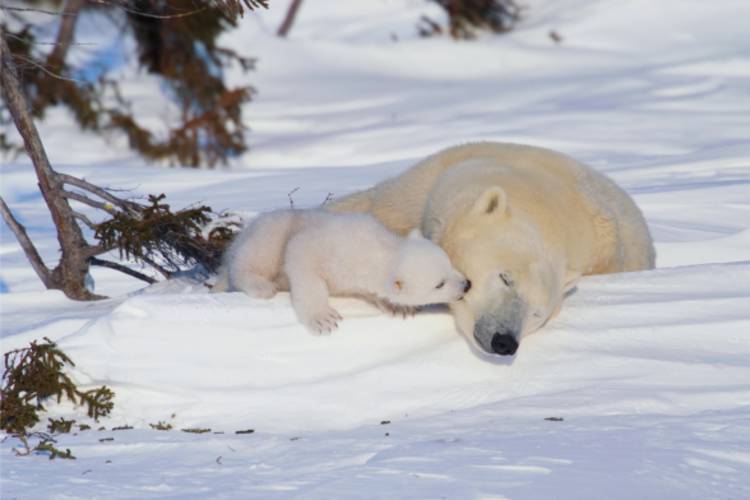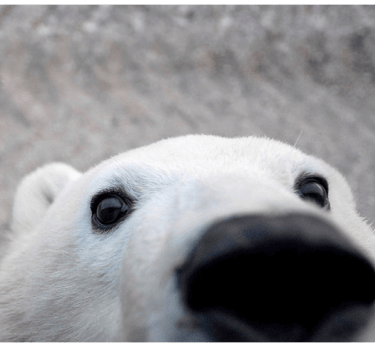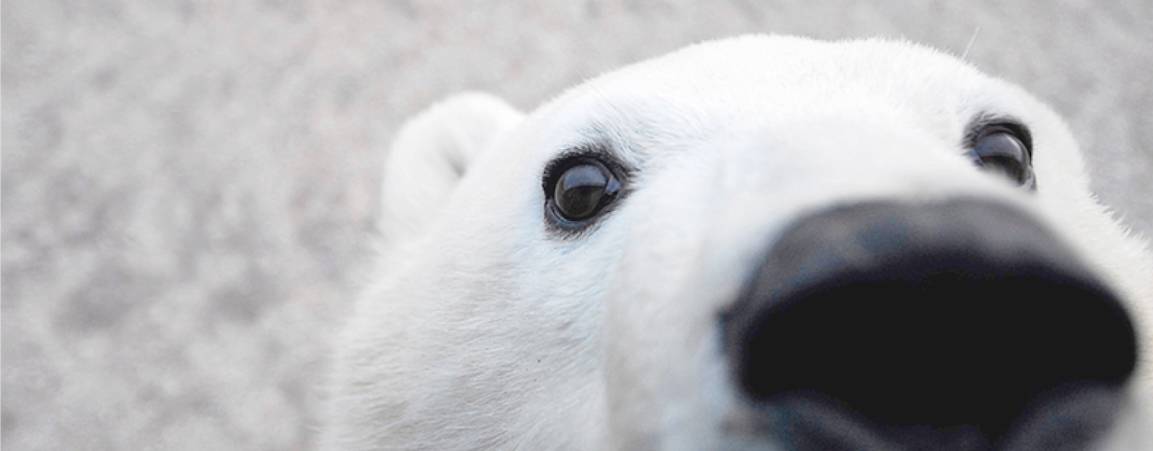PARTICIPANTS IN POLAR BEARS INTERNATIONAL’S CLIMATE ALLIANCE PROGRAM GATHER IN CHURCHILL, CANADA
September 29, 2022 (Churchill, Canada): Representatives from 16 zoos and aquariums from the U.S., Canada, and Europe will travel to the tundra near Churchill, Canada, in early October for a Climate Alliance summit sponsored by Polar Bears International (PBI), the only nonprofit solely dedicated to conserving wild polar bears and their sea ice habitat. The summit is designed to help PBI’s zoo and aquarium partners communicate effectively about climate change and work within their communities to inspire solutions. It also gives participants the opportunity to see polar bears in their natural habitat and experience the ecosystem firsthand.
“The chance to see polar bears in their natural habitat has a huge impact, giving participants stories to share that resonate with the public in a deeply personal way,” said Marissa Krouse, PBI’s director of conservation programs. “When they return home, they can work the experience into their keeper talks and other outreach, while also talking about the threats bears face and how we can work together to ensure their future.”
Prior to their trip to the tundra, participants took an eight-month online course developed by Polar Bears International focused on polar bears, sea ice, and climate change. The self-paced learning modules include a segment on how to talk about what they’ve learned with the public, based on tested language and metaphors. The climate messaging was developed by the National Network for Ocean and Climate Change Interpretation (NNOCCI). It explains climate science in a clear, inclusive way that provides hope and engages visitors in solutions.
Participants in the program are drawn from PBI’s Arctic Ambassador Center network, which is composed of 50 zoos, aquariums, and wildlife parks in the U.S., Canada, and Europe. Select keepers and animal care staff will take part in this year’s program.
“We developed the Climate Alliance program for zoos and aquariums because studies show that zoos are trusted messengers on climate change,” said Krouse. “What’s more, more people pass through zoo turnstiles in North America than all sporting events combined.”
Collaborative efforts to understand and protect polar bears couldn’t come at a more urgent time. The International Union for Conservation of Nature estimates that just 26,000 polar bears remain across their range, which includes the U.S. (Alaska), Canada, Russia, Greenland, and Norway (Svalbard). The polar bears’ continued survival depends on human action to transition away from burning fossil fuels for energy like coal, oil, and natural gas. Zoo-based energetics research in partnership with field researchers was pivotal in the groundbreaking report that if we stay on our current greenhouse gas emissions path, polar bears could disappear by the end of the century.
The experience of visiting Churchill with PBI staff and scientists, facilitators, and local knowledge holders provides participants with inspiration for creating an action plan to implement at the community level when they return home. It also nurtures the culture of collaboration vital to working with others to address climate change.
“Our partnership with zoos and aquariums is collaborative and conservation-focused,” said Krouse. “Not only are keepers and animal care teams building public outreach and having climate conversations daily with the millions of visitors that pass through their gates every year, but because of the relationship these skilled caretakers have with the bears in their care, they are able to contribute to important research programs, helping us better understand polar bear behavior and physiology.”
The experience will include several nights on the Tundra Buggy® Lodge, with polar bears just outside, followed by several nights at the Churchill Northern Studies Center, an independent, nonprofit research and education facility. Despite the remote location, participants will stay connected with the rest of the world through communication plans developed by their team and through social media, using the hashtag #ClimateAlliance.
This year, participants include keepers and animal care staff from the Cincinnati Zoo & Botanical Gardens, Columbus Zoo and Aquarium, Henry Vilas Zoo, Kansas City Zoo, Louisville Zoo, Maryland Zoo, Memphis Zoo, North Carolina Zoo, Oregon Zoo, Point Defiance Zoo & Aquarium, San Diego Zoo, Utah's Hogle Zoo, and Save the Chimps in the U.S.; Assiniboine Park Zoo and Toronto Zoo in Canada; and Pairi Daiza in Belgium. Facilitators include volunteers from the Cincinnati Zoo & Botanical Gardens, Oregon Zoo, Como Park Zoo, and NNOCCI.
In addition to Polar Bears International, camp sponsors include Frontiers North’s Tundra Buggy® Adventure, Canada Goose, Calm Air, and Courtyard by Marriott Winnipeg Airport.
About Polar Bears International
Polar Bears International’s mission is to conserve polar bears and the sea ice they depend on. Through media, science, and advocacy, we work to inspire people to care about the Arctic, the threats to its future, and the connection between this remote region and our global climate. PBI is the only nonprofit organization dedicated solely to wild polar bears and Arctic sea ice, and our staff includes scientists who study wild polar bears. The organization is a recognized leader in polar bear conservation. For more information, visit www.polarbearsinternational.org.
About Frontiers North Adventures
Frontiers North’s Adventures (FNA) is a Platinum-level corporate partner of Polar Bears International that has supported the Climate Alliance program since its inception, including housing participants in its Tundra Buggy® Lodge. FNA provides authentic adventures in Canada’s North and boasts the best access in the world to wild polar bears. Visit their web site at www.frontiersnorth.com.

